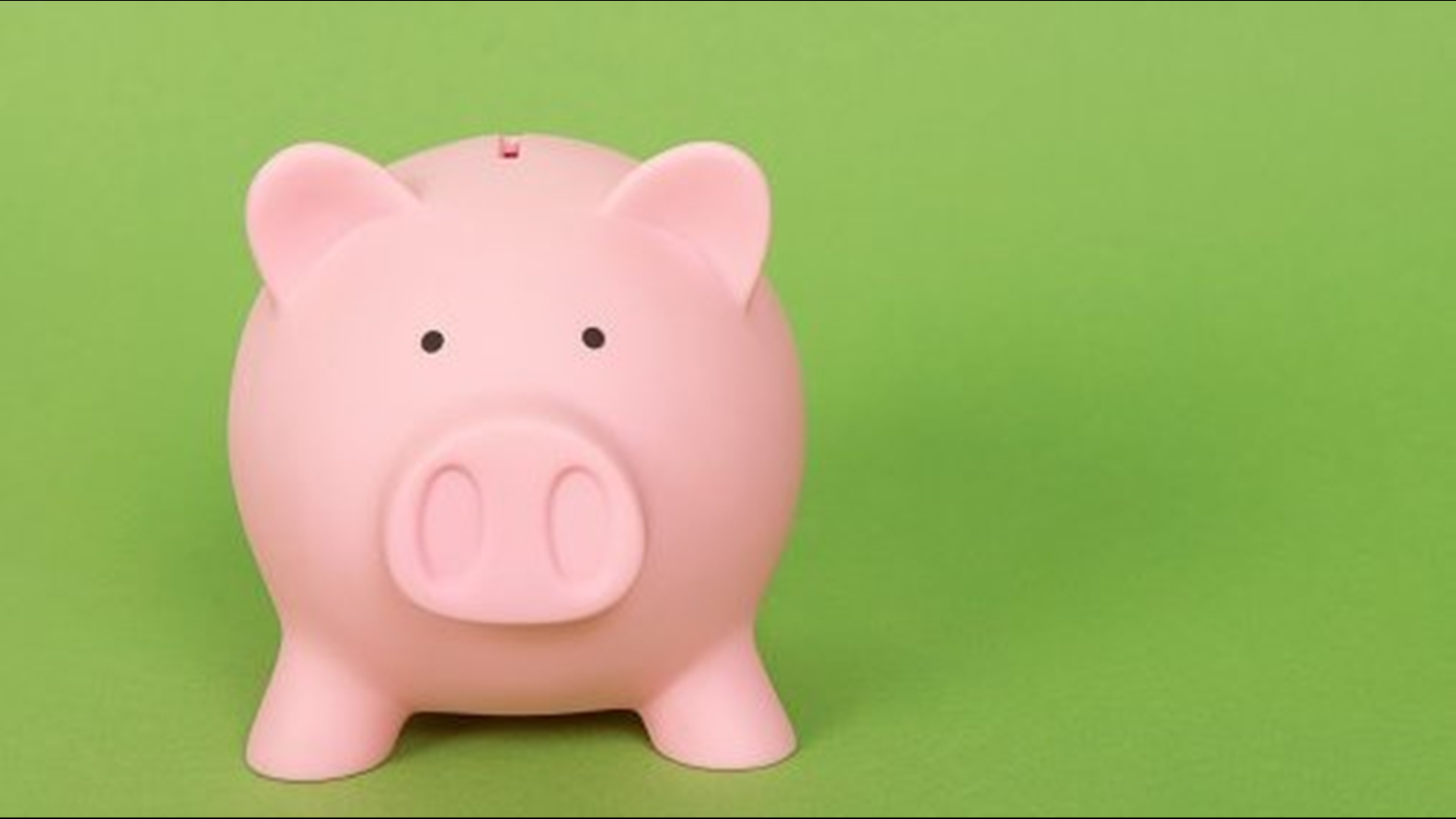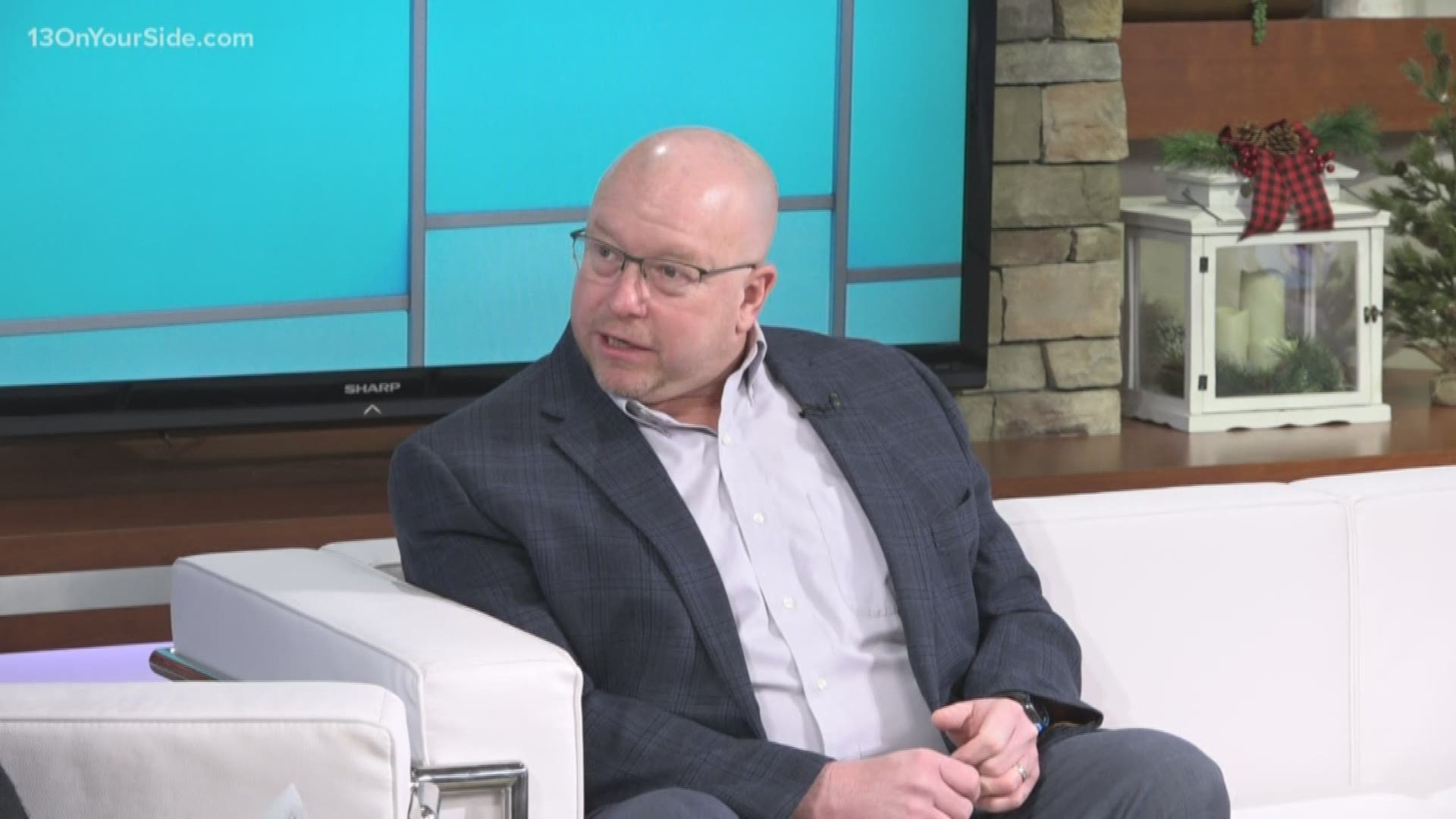GRAND RAPIDS, Mich. — 2020 is the year to make the best financial choices you ever have. It's a good goal, but it can be difficult to see where to start from. There are many different aspects of saving, spending, earning, and investing that it can get overwhelming trying to make a comprehensive and attainable financial goal for the new year.
Kelly Gilbert with EFG Financial shared some of his advice on how to get where you want to go when it comes to money this year.
Create a financial plan
One of the biggest fears people have about money is running out of it in retirement. It's important to find a financial adviser who works with you and can help you make decisions based on your unique situation. Make sure, when meeting with an adviser to look at the entire plan, not just bits and pieces of one. it should include everything from paying for college, income, Social Security, taxes, and possible long term care for yourself or a loved one.
Eliminate Debt
Student loans, a car loan, credit card debt, or a home mortgage all mean one thing: debt. Most Americans have debt, in fact, the consumer debt of the U.S. is almost $14 trillion. However, it is important to work toward eliminating debt as soon as you can. Tackle the high interest debt first. This is the debt that is costing you the most money, and will hurt you the most as you try to dig out of the hole. Credit card debt is infamous for this. the average interest rate for a credit card is 17%. For every $100 of debt you have on a credit card, you actually OWE $117. If you aren't sure which debt is costing you the most, try crunching the numbers with an interest rate calculator.
Build an Emergency Fund
An emergency fund is money you can access if an emergency arises, like a trip to the emergency room, a home repair, or a sudden layoff. More than half of households in the U.S. don't have an emergency savings account. That includes the majority of people over the age of 50. It's more financially risky the closer you are to retirement. Gilbert recommends you have between three and six months of expenses saved in your emergency fund.
Save 15% of your income
Once you have that emergency fund cushion, Gilbert recommends bumping up your retirement savings. If you can, save at least 15% of your income for retirement. The more you can save, sooner, the better. Compound interest is helpful for people using retirement accounts who begin saving money early. If you save $5,000 a year starting at age 25, you could have $1.3 million in the bank by 65. That's assuming an 8% return. If everything else is the same, but you start saving at 35, you'll only have half of that.
So, how do you get started?
You have two options: the snowball method or the avalanche method. The snowball method: Organize your credit card debt to see which card has the lowest balance. Make the minimum payment on your other cards and put the rest of you money toward paying off your smallest debt. Then, start paying off the next smallest. You'll be eliminating debts, so you can use the money you would have otherwise bee paying to those debts to help eliminate the others faster.
The avalanche method is much the same, but organize your credit card debts by the highest interest rate. Pay that one off first while only paying the minimums on other debts. This may seem like you aren't accomplishing anything, but you are saying money on interest. When you finish paying it off, move on to the next highest interest rate.
Next, cut unnecessary expenses. That includes things like a gym membership you don't really use, or those extra trips to the coffee shop during the week. By cutting those you'll be able to keep more of your money in your pocket.
Start small. Start by saving $10-20 a week, and work your way up to 15% of each paycheck. It's easier if you set up an automatic withdrawal from your paycheck to a separate savings account or a 401(k). This way, there is less of a temptation to spend it rather than save it.
RELATED VIDEO:
More financial news on 13 ON YOUR SIDE:
►Make it easy to keep up to date with more stories like this. Download the 13 ON YOUR SIDE app now.
Have a news tip? Email news@13onyourside.com, visit our Facebook page or Twitter.


